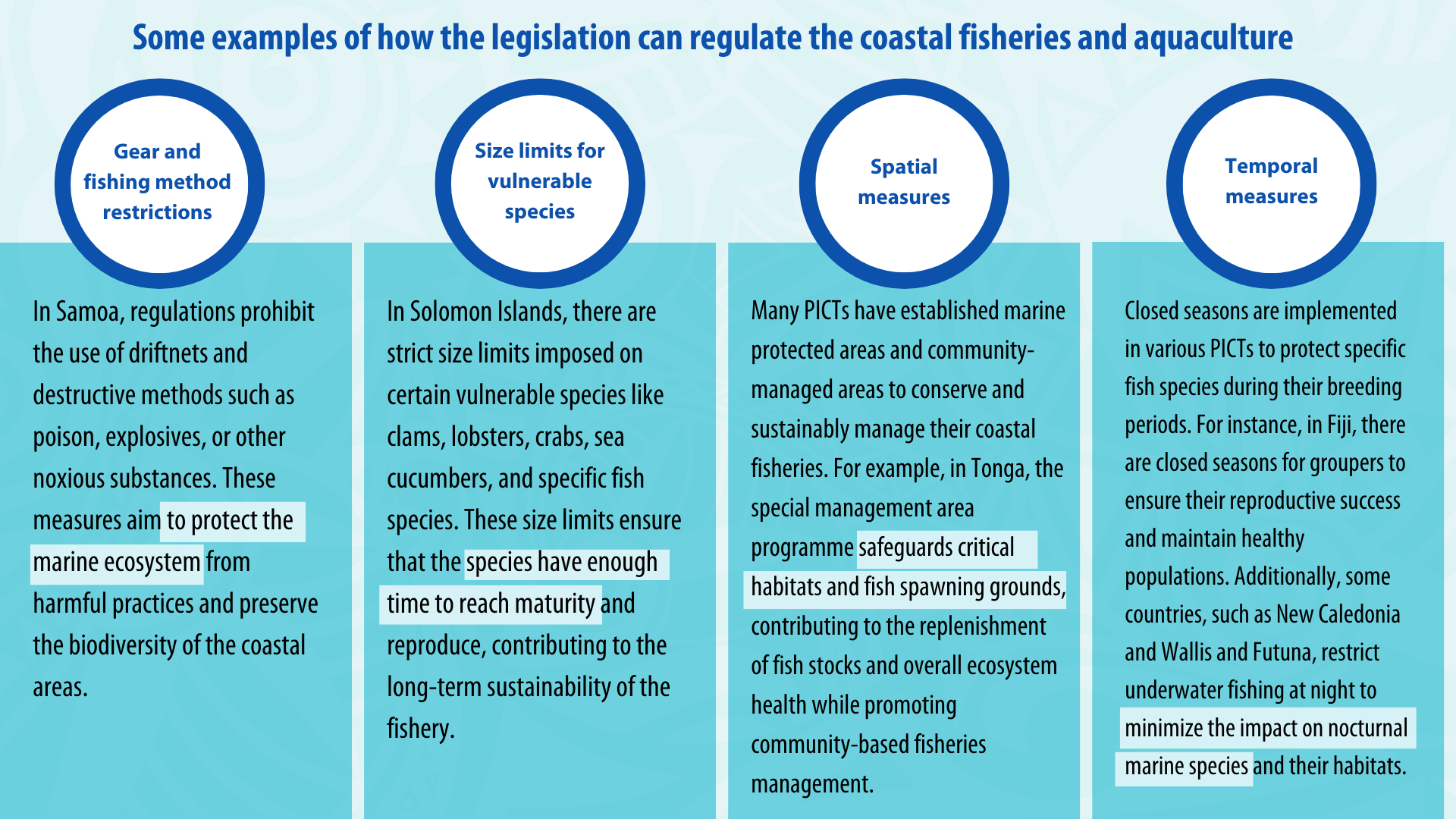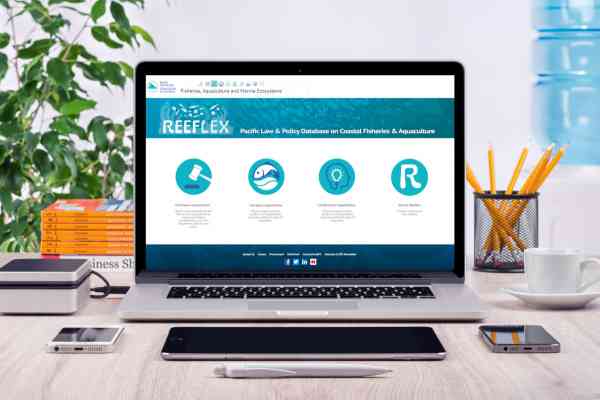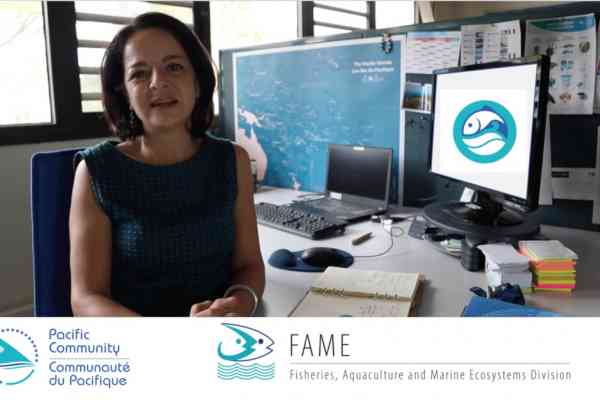Have you ever wondered how laws and policies shape our coastal fisheries and aquaculture? Are you curious about finding the right information to protect these vital resources?
The Pacific Islands are home to a rich diversity of marine resources, with approximately 4,000 finfish and invertebrate species inhabiting its coastal areas. The significance of these resources cannot be overstated, as fresh fish consumption ranges from 16 to 102 kg per person per year (SPC 2022), and 70% of fisheries production in the Pacific Island coastal areas comes from subsistence fishing (Gillett and Tauati 2018). In fact, 31% of all Pacific fisheries are small-scale (FAO et al 2022), and excluding Papua New Guinea, 90% of Pacific Islanders live within 5 km of the coast (Andrew et al 2019).
Given the great importance of coastal fisheries to the Pacific peoples, managing marine resources sustainably is a top priority for all stakeholders. One way to achieve this is by implementing a robust legal framework.
Four reasons why the Legal Profiles tool is relevant:
Legal Profiles is an information tool available on SPC’s regional online database, called REEFLEX, related to coastal fisheries and aquaculture laws and policies across all 22 Pacific Islands Countries and Territories (PICTs) and Timor Leste.
The Legal Profiles tool is a vital resource for understanding the legal framework that governs these precious marine ecosystems. Here are four reasons why this tool is game-changing for everyone who is interested or has worked in the coastal fisheries and aquaculture sector:
- Through the Legal Profiles tool, we gain a deeper appreciation for the essential role that coastal fisheries play in the lives of Pacific Island communities. The tool serves as a compass, guiding us through the intricate web of laws and policies that shape fisheries governance. It outlines national legal frameworks to address the urgent need to prevent overfishing, habitat destruction, and unsustainable fishing practices, while also highlighting relevant management measures and strategies for resilience.
- Sustainable practices are crucial for safeguarding the future of coastal fisheries. By integrating ecosystem-based management and promoting responsible aquaculture, Pacific Island nations can strike a balance between economic development and environmental conservation. The Legal Profiles tool acts as a beacon, offering insights into sustainable management measures and empowering stakeholders to make informed decisions.
- Indigenous knowledge and community engagement form the backbone of coastal fisheries governance in the Pacific Islands. The Legal Profiles tool recognizes the importance of traditional practices and highlights mechanisms for integrating customary fishing practices into PICTs’ legal frameworks. It emphasizes the need to involve local communities in decision-making processes, ensuring that their voices are heard, and their rights are respected.
- Comprehensive policies and management plans are instrumental in sustaining coastal fisheries. The Legal Profiles tool identifies the national policies and plans that guide Pacific Island nations in their efforts towards sustainability. By promoting transparency, collaboration, and accountability, these instruments pave the way for effective governance and resource management.
Accessing the Legal Profiles tool is straightforward, as it is designed to be user-friendly and accessible to all. Simply visit the website, select your desired PICT and embark on a journey through the legal seascape. Explore key governance bodies, laws, regulations and policies that shape coastal fisheries frameworks, equipping yourself with knowledge to make a difference.

The Legal Profiles tool is a valuable resource, empowering individuals, stakeholders and decision-makers to navigate the complexities of fisheries governance. Armed with the Legal Profiles tool, we empower ourselves to navigate the complex seascape of fisheries governance. Understanding the laws and regulations governing marine resources is critical to their preservation. By gaining a deeper understanding of the laws, regulations and management measures, we become catalysts for change.
REEFLEX, a user-friendly voyage
REEFLEX is a web app on coastal fisheries and aquaculture legislation. It collates over 1000 documents arranged by country and type (constitutions, laws, regulations, policies and management plans) from many different areas such as fisheries, aquaculture, navigation, the environment, etc. These documents have been selected from more than 30 online sources of information (government sites and international legal databases) or are digitised versions of documents SPC has collected during fieldwork (particularly in terms of legislation by local bodies).
REEFLEX offers a user-friendly interface with four distinct categories to assist users in their exploration of coastal fisheries and aquaculture legislation:
- Find Laws & Policies
- Compare Regulations
- Legal Profiles
- Resources
To provide your feedback on this story, please contact: Ariella D’Andrea at [email protected] and Solène Devez at [email protected].

